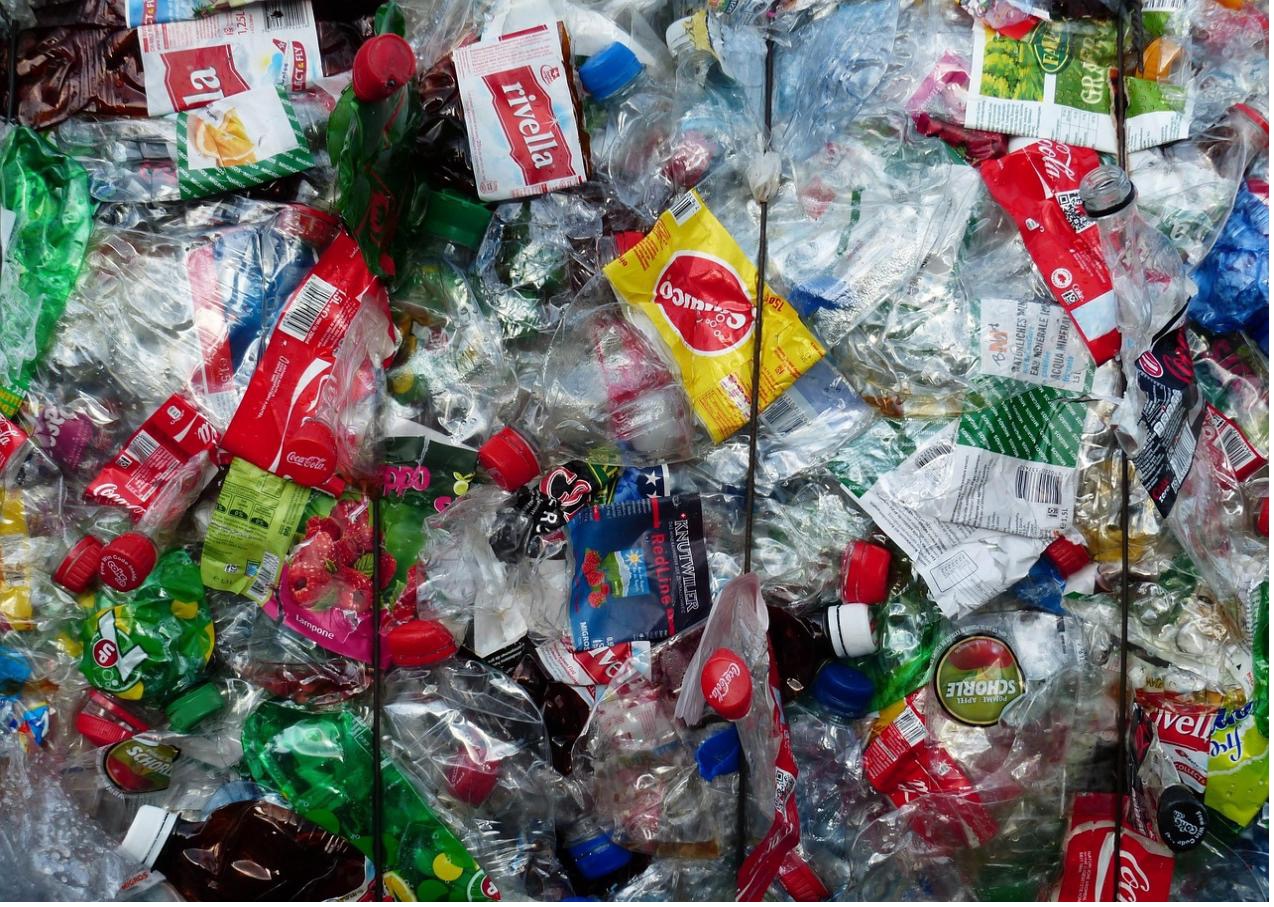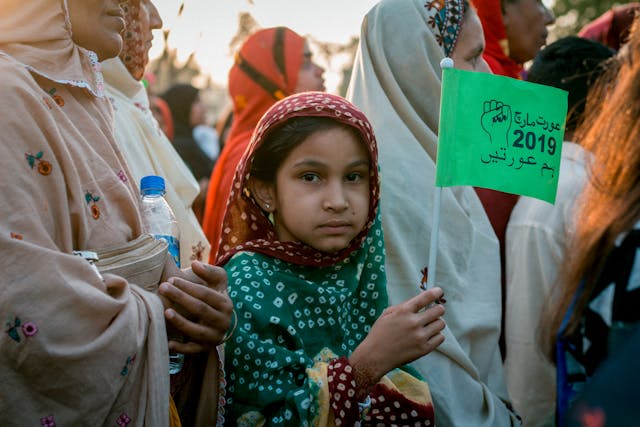“Freedoms are not only the primary ends of development, they are also among its principal means,” writes Amartya Sen in his Development as Freedom (Sen 1999). According to the said economist, who is highly acclaimed for his work on welfare economics, development in its real terms is expanding the freedom and choices of people, and cultivating their capabilities as a result.
The sort of human consciousness needed to complete the concept of human development, and realize its practical implications, is founded on the principles of compassion, empathy and justice, that are directed to the people and the environment.
Capitalism, global crises and consciousness
Capitalism, since its nascence, has undoubtedly brought great benefits to humanity. The system of capitalism, however, despite its central values that promote individuality, has failed to provide economic stability, social equality, and a culture of freedom (in the true sense of the word). The unchecked production, consumption and waste disposal mechanisms have jeopardized the life support systems of the planet, as well. A brief review of the latest facts and figures can give a picture of the severity of global inequality and environmental crisis.
According to Oxfam International, the top 1% have “more than twice as much wealth as 6.9 billion people” around the world. Moreover, about 735 million people are living in extreme poverty while almost half of the world lives on less than $5.50 a day. The conditions of public services, especially in underdeveloped countries, are alarming and heart-wrenching. For example, 10,000 people die every day due to lack of affordable healthcare (Oxfam n.d.). According to the World Bank, around 53% of children in low and middle-income countries cannot read proficiently by age 10 (World Bank 2019).
As for environmental degradation, there is hardcore scientific evidence to suggest the trend of climate change. Earth’s “average surface temperature has risen about 2.05 degrees Fahrenheit since the late 19th century”, and most of the global warming has occurred in the prior four decades only (NASA n.d.). Based on the current level of threat, which is suspected to increase if corrective measures are not taken on time, around 800 million people are exposed to the direct impacts of climate change (Conservation International n.d.).

These indicators have shown, beyond doubt, the severity of the issues at hand. The capitalist mode of production and consumption has empowered a form of consciousness in people that breeds on pure self-interest. It is not the problem of capitalism itself, but of human beings and their tendency to greed and exploitation.
The market forces are primarily driven by a human consciousness that is based on the exploitation of people and the ecosystem for the sole benefit of the self. This form of consciousness impedes the actualization of human development based on the freedom of people. Moreover, the very consciousness that capitalism breeds poses a grave threat to the planet.
A new (or old) kind of human consciousness
Dr. Akmal, a recognized economist of Pakistan, suggests that a review of the classical Greek wisdom and the rich Sufi tradition brings to the table a new kind of consciousness. This consciousness, if infused with the system of capitalism, can bloom a culture of justice, equality and compassion that is directed to the people as well as the environment (Hussain 2018).
Development driven by this new form of consciousness will, on account of ensuring human freedom, unleash the creative capabilities of people. It will also break away from the ideas of mainstream economics – where development is measured in the language of wealth – and introduce an economy that revolves around the wellbeing of people. Let us give a brief introduction to this human consciousness.
In Nicomachean Ethics, Aristotle proposed that material goods cannot be of true value, because they merely exist for the purposes of human functioning. He suggests, then, that true value lies in human beings living according to the principles of virtue. These principles of virtue, in order to give value to human existence, should align with the structure and voice of the human soul (Hussain 2018).
Simply put, human behavior represents true value when it functions according to the logic of the soul. This is a powerful form of human consciousness that implies transcending the material paraphernalia of life and adopting the sort of virtuous behavior that accords with human conscience.
After 2400 years, Amartya Sen took up the concept of human functioning that was proposed by Aristotle and translated it into a function of human development. Human development, according to Professor Amartya Sen, requires the “removal of major sources of unfreedom” and thereby expanding the rights and opportunities of people (Sen 1999). Freedom and equality of opportunities unfold the collective and latent capabilities of people, which consequently prompt development in all spheres of life, individual and collective.

Human development revolves around human functioning and places freedom as the cornerstone for grooming human capabilities. Dr. Akmal points out that “living a life of virtue as a form of human functioning that was raised by Aristotle” is a missing dimension in the concept of human development (Hussain 2018). The idea of living a life of virtue, the principles of which accord with the human soul, can be traced back to the rich Sufi tradition.
Human development through freedom, justice and love
In Sufism, self-actualization is a journey undertaken through the path of love. Love sprouts from the heart of the soul and encompasses all creation, including people and nature. Love towards creation is also the reflection and testimony of Love for the Creator. Ibn Arabi, an Andalusian Sufi mystic, also known as Sheikh Al-Akbar (The Greatest Master), said:
“I follow the way of Love, and where Love’s caravan takes its path, there is my religion, my faith.”
Love for the creation is expressed as sincere compassion, empathy and justice towards people and nature. In fact, a sense of empathy towards the “other” is the defining feature of being a human. Saadi Shirazi, the author of the magnificent Gulistan, openly asserts:
“O thou who hath no sorrow in seeing the sorrow of others; Thou art not worthy of being called a human being.”
Sufism accounts Self as the holder of the Truth. Self-actualization, then, is a journey towards the Truth. Jalal ad-Din Rumi, a dignified Sufi mystic and poet of the 13th century, penned:
“You are searching the world for treasure, but the real treasure is yourself.”
The journey to self through the path of Love is expressed as a relationship with the Creation. This is a beautiful consciousness where the self “finds fulfillment in its relationship with the other” (Hussain 2018).
Like the Self, Nature embodies the Truth, according to Sufi teachings, and manifests the attributes of the Creator. Thus, in the eyes of those who are searching for transcendent beauty, Nature embodies Divine Wisdom and a sacred value (see Note 1). Humans are meant to, on one hand, appreciate Nature’s bestowments that sustain all life, and on the other, recognize its immense beauty and wisdom.
Dr. Akmal remarks: “Nature… provides an opportunity for us to live on earth and yet experience the transcendent. We simultaneously inhabit the ephemeral and the eternal” (Hussain 2015).
Many Sufi sages have highlighted the concept of self-annihilation when expressing their relationship with the “other”. Self-annihilation – which is essentially the mystical equivalent of Prophet Muhammad’s commentary: “die before you die” (Rumi 2001) – requires transcending one’s ego. It is the sacrifice of self’s basal desires to experience satisfaction in the presence of the Beloved. Shah Hussain, a Punjabi Sufi poet of the 16th century, beautifully captured this concept in a single phrase:
“Ma nahi sub tuu” (Naught am I, All is You).
Love evolves a form of consciousness that leads towards virtuous behavior. Shams Tabriz, the Sheikh of Jalal ad-Din Rumi, stated: “A good man is one thing, a lover something else” (Tabrizi 2015). Love is the channel that connects the innate propensities of the soul with one’s faith and behavior, which forms the kind of noble human functioning posited by Aristotle.
Dr. Akmal writes that it is when love forms the basis of “social and economic relations rather than commodities alone, that human beings can fulfill themselves and give meaning to their existence” (Hussain 2018).

Practical implications of human development
Human consciousness expressed as compassionate interdependence between self, others, and the environment, transcends the material dimensions of life. When coupled with the theory of human development, it overturns the concepts of neo-classical economics, according to which people are atomized individuals isolated from the community, and nature is a resource waiting to be exploited.
The spirit of policymaking, governance and capitalism, when infused with this type of human consciousness, will shift the direction of development to greater purposes, such as, increasing equality, fighting violence and injustice, and coping with climate change.
The human consciousness sprouted from love derives innovative and humanistic solutions in practical domains. Muhammad Iqbal, a visionary poet and philosopher known as the Spiritual Father of Pakistan, pens:
“Build in love’s empire your hearth and your home,
Build Time anew, a new dawn, a new eve!”
Notes
- Taken from Rumi’s verse “Of His Mercy He created Wisdom in inanimate things” mentioned in a poem in Masnavi e Ma’navi (Translated by E.H. Whinfield), Book 4, page 302. He illustrates the concept further by expressing the wisdom of the river Nile in Egypt during the time of Moses; of the moon splitting into half; of the trees bowing down at the feet of Muhammad; and so on.
References
Conservation International. n.d. Climate Change: 11 facts you need to know. Conservation International.
Hussain, Akmal. 2018. “Capitalism, Consciousness and Development.” Chap. 3 in Economic Theory and Policy amidst Global Discontent, by Ananya Ghosh Dastidar, Rajeev Malhotra and Vivik Suneja. Routledge.
Hussain, Akmal. 2015. “The Planet in Peril and a Civilization in Crisis: Reviving a Sense of the Sacred.” In The Sacredness of Creation: Spiritual Responsibility of Muslims and Christians to care for Our Common Home – Planet Earth, by Christian W. Troll and Liam O’Callaghan. Lahore: Multimedia Affairs.
NASA. n.d. Climate Change: How Do We Know? NASA: Climate Change and Global Warming.
Oxfam. n.d. 5 shocking facts about extreme global inequality and how to even it up. Oxfam International.
Rumi. 2001. Masnavi e Ma’navi. Translated by Edward Henry Whinfield. Vol. IV. VI vols. Ames, Iowa: Omphaloskepsis.
Sen, Amartya. 1999. Development as Freedom. New York: Oxford University Press.
Tabrizi, Shams. 2015. Me & Rumi: The Autobiography of Shams-I Tabrizi. Edited by William C. Chittick. Kashmir: Gulshan Books.
World Bank. 2019. Ending Learning Poverty: What Will It Take? Report, Washington, D.C.: World Bank.







4 thoughts on “Human Development and Human Consciousness”
Pingback: Can Pakistan be Exempt from the Challenges of Climate Change? - Effective Thoughts
Pingback: The Fermi Paradox - Effective Thoughts
Pingback: Growth of the Urban Informal Sector - Effective Thoughts
Pingback: Pakistan 2047 Concept of Development - Effective Thoughts